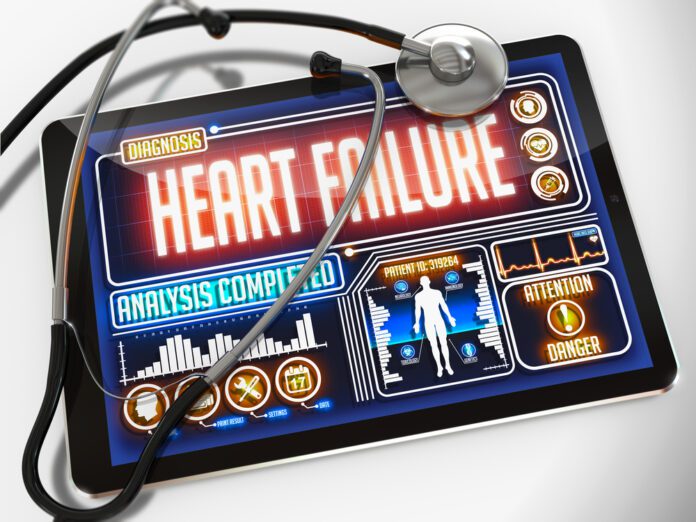Heart failure affects over 25 million people worldwide and continues to increase in number. The United States records about 14% of deaths from heart failure yearly and nearly 500,000 diagnoses each year. Heart failure is caused by ailments like coronary heart disease, heart attack, high blood pressure and other heart-related diseases. However, lifestyle also affects heart health; drinking too much alcohol and eating unhealthy foods could greater the risk of heart failure. These 9 symptoms of heart failure will tell you when to get help.
What Is Heart Failure?
Heart failure is a progressive condition that results when the heart cannot pump blood to the body at a normal rate. This inability to pump blood properly occurs when the heart is weakened or stiff. There are two types of heart failure classified based on the affected part of the heart. They are:
Left-sided heart failure: Left-sided heart failure is the most common type of heart failure. It results when the left ventricle of the heart, which is the major heart chamber, is stiff or weakened. Thus, the blood supply to the body is inefficient.
Right-sided heart failure: The right ventricle receives blood from the body and sends it to the lungs. This type of heart failure results when the right ventricle is unable to pump blood sufficiently to the lungs.
Heart failure is a chronic condition that happens slowly, progressing gradually through stages. It has no cure and if not properly managed, can lead to death. Early diagnosis can increase the life expectancy of patients. It is therefore important to watch out for warning signs and these 9 symptoms of heart failure.
9 Symptoms Of Heart Failure – Plus Warning Signs
Please seek medical advice from a doctor if more than one of these signs and symptoms are experienced
1. Shortage of breath
Difficulty in breathing is normal when it is experienced after a strenuous exercise. However, once this sign is experienced more often than usual during normal daily activities, it can be attributed to heart failure and must be examined. Shortage of breath, can be a symptom of heart failure, and is the result of the accumulation of fluid in the lungs caused by blood backup in vessels. This symptom gets worse as the condition progresses.
2. Fatigue and tiredness
When one feels tired easily after normal activities such as climbing a few steps or walking for some distance, it could be a case of excertional dyspnea which can be a symptom of heart failure. Heart failure can cause tiredness and fatigue as many organs and body parts don’t get sufficient oxygen to function well.
3. Persistent coughing
Persistent and incessant blood stained coughs can also be an indication of heart failure. The buildup of fluid in the lungs of a heart failure patient can cause continuous coughing of white and blood-stained substances; this should not be taken lightly
4. Edema
Fluid is usually retained in the lungs as well as other body parts in patients with heart failure. Lower extremities like the legs, ankles, feet and abdomen are usually swollen from this condition
5. Lack of appetite
The feeling of being full can be a result of a lesser blood supply to the stomach thereby upsetting its normal functioning
6. Nausea
Persistent feeling of vomiting can be as a result of many other ailments. However, when accompanied by anyone of these other signs, heart failure might be the case
7. Increased heart rate
Another major symptom of heart failure is increased heart rate. If the heart rate feels like it is throbbing, even when resting, it is enough to call for alarm
8. Cognitive lag
In heart failure, when heart couldn’t pump enough blood to brain, it’s cells get deprived of oxygen resulting in cognitive disturbances such as memory loss and slow thinking
9. Weight gain
Increase in weight suddenly without any known cause is enough to seek medical attention as this is one of the signs of heart failure
It is important to constantly watch for signs of this condition so as to ensure proper management which involves treating symptoms if diagnosed.
Heart Failure – When To Get Help?
Heart failure is grouped into four stages based on symptoms. Stage A is a symptom-free stage with risks of developing the condition. Stage B is when all nine symptoms mentioned above begin to manifest. Heart failure has set in, at this stage. Stage C is a more advanced stage; patients experience even worse symptoms and require more complicated clinical attention. Stage D is the final of all stages and once the patient gets to this stage, he or she has a life expectancy of less than a year. During stage B, any symptoms can manifest first, there is not any particular sequence. However, when one experiences a shortage of breath, edema and massive weight gain only within days, this is a matter of urgency; report to a doctor or medical practitioner immediately.
If one suspects heart failure, asides from seeking medical help, lifestyle changes which include stress management, eating better should be adopted immediately.
Conclusion
Symptoms are usually manifested in the second stage of heart failure. Seek help immediately after the above symptoms are recognized, as it can become easier to manage the condition and it is possible to increase the life expectancy of the patient.








